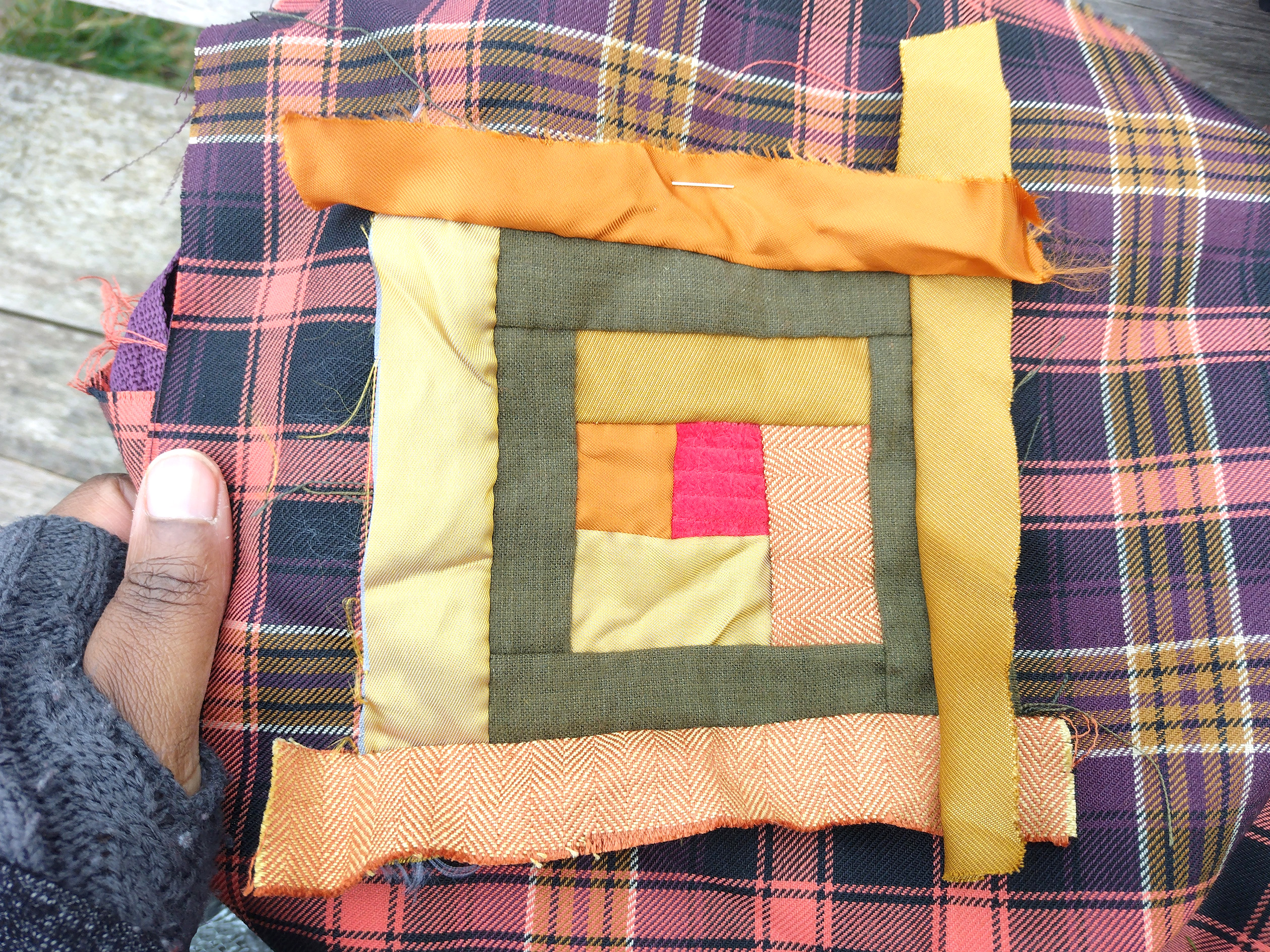
Sewing from scraps:
Extravagance, but make it equitable
by LiLi K. Bright
Guest editor Forrest McGarvey
Minimalism can be violent. That's my experience, at least — a brutal paring down to the bare minimum. White supremacy culture says “be efficient, eliminate waste.” I resist.
Last year, I learned the importance of repetition and redundancy. For me, navigating ADHD in a neurotypical world, if it can be lost, it will be misplaced. Repeatedly.
Consequently, I've been deliberately embracing a maximalist mindset through a creative exploration with fabric, informed by climate justice, the regenerative economy, and radical expression.
Ecology is a closed system, therefore an extractive economy makes no sense. We cannot discard what we don't want from it, only within it. Enter the need for projects that find uses for what’s been deemed useless, as well as learning that tending towards zero waste is fun.
I was introduced to the Just Transition Framework by climate and social justice organizer Derek Hoshiko. Learning about extractive and regenerative economies with this framework transformed my understanding of ecologies and ‘waste’, and gave me words for behaviors that had intuitively made sense to me when collaboratively running co-operative community cafés.
Sewing from scraps has taught me something exciting, unexpected and expansive about creating from abundance, purely for the joy of creating, delighting in extravagance without expense.

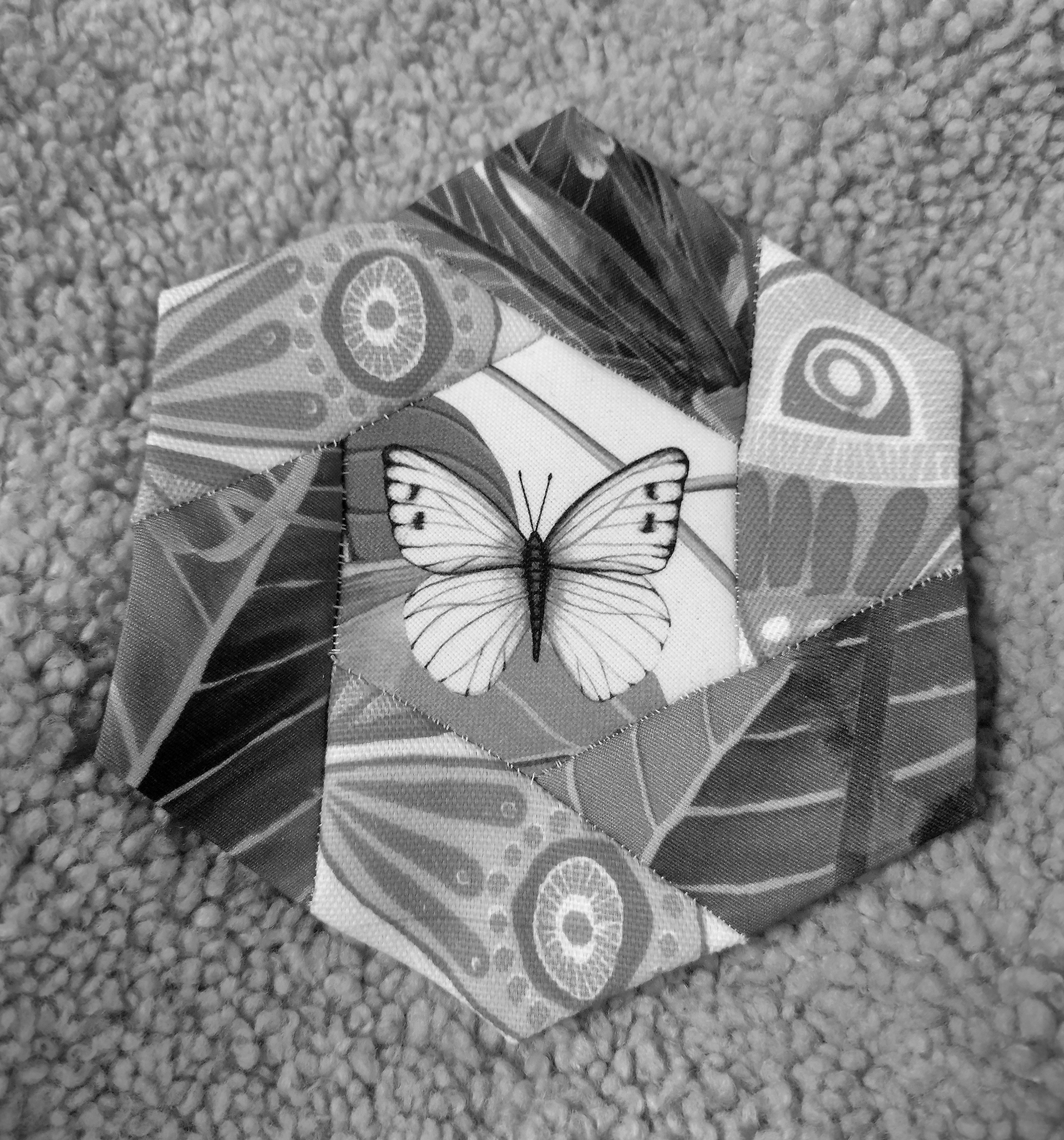
I started attending online courses with the Workers’ Educational Association (WEA), a charity delivering financially accessible education to thousands of adults across the U.K., during the first U.K. national lockdown in May 2020.
I’d wished I knew how to sew for years. I particularly longed to make a patchwork quilt. It always felt inaccessible to me.
In December 2022, a short course caught my eye, “for beginners who are interested in learning a basic and traditional mosaic style technique from the world of patchwork”. I felt intimidated, but reasoned it was only a few hours, and that I could leave unobtrusively if I felt uncomfortable. I enrolled.
In three hours, I’d learned how to quilt a coaster (pictured) using the English Paper Piecing technique. And picked up a new special interest.
I’d wished I knew how to sew for years. I particularly longed to make a patchwork quilt. It always felt inaccessible to me.
In December 2022, a short course caught my eye, “for beginners who are interested in learning a basic and traditional mosaic style technique from the world of patchwork”. I felt intimidated, but reasoned it was only a few hours, and that I could leave unobtrusively if I felt uncomfortable. I enrolled.
In three hours, I’d learned how to quilt a coaster (pictured) using the English Paper Piecing technique. And picked up a new special interest.
Enter my local scrapstore…
The Work & Play scrapstore in South London is full of superfluous things, surplus to requirements, so called ‘waste’. Those who take care of it describe it as a treasure trove. It is. Not a goldmine — that would be extractive! — but a garden, regenerative and organic. A community orchard where fabrics, stationery, arts and crafts materials go to find renewed purpose. A team of volunteers identify what’s abundant in the system and facilitate its movement, connecting materials with makers. It's about sharing resources.
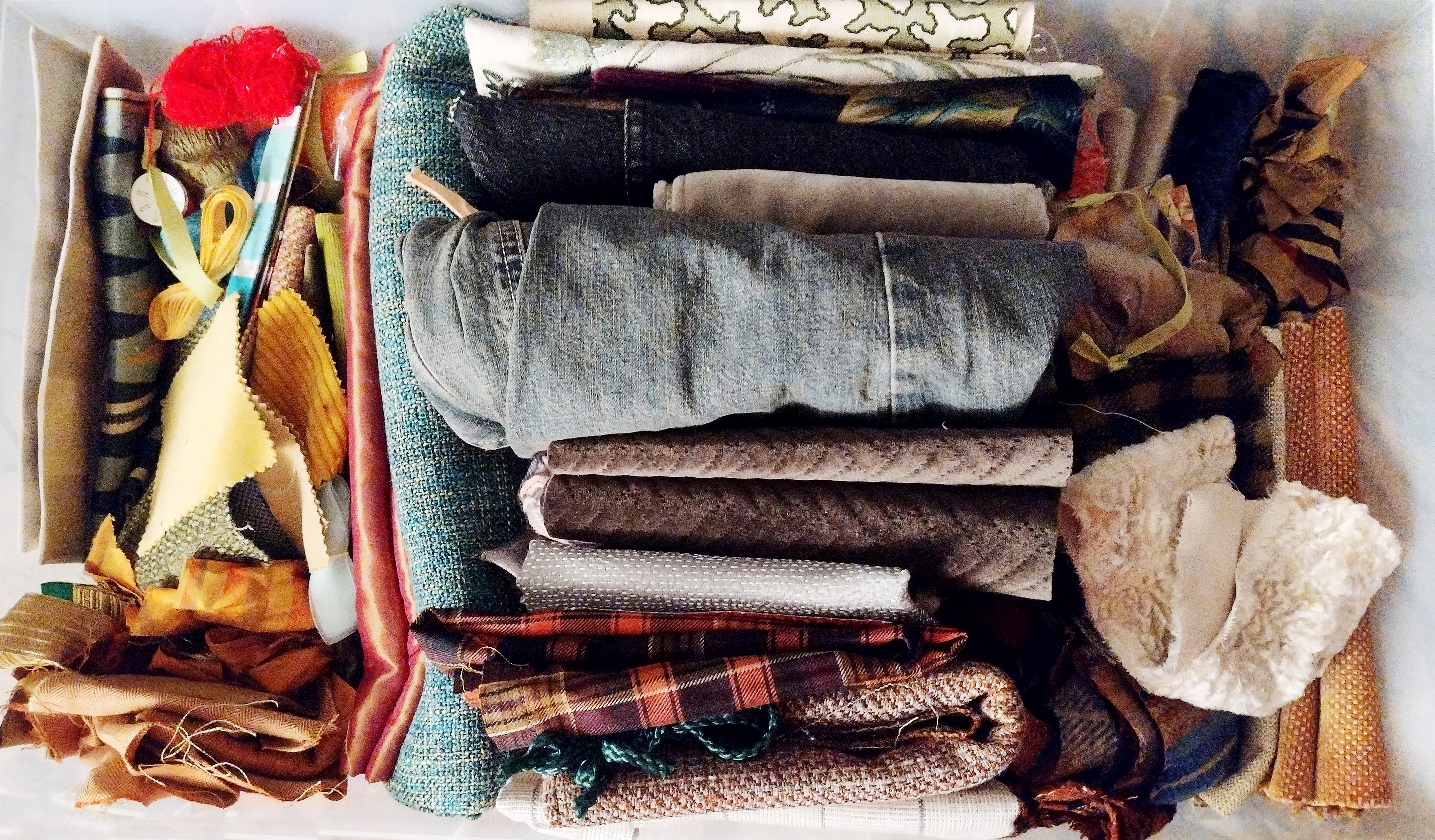
That’s where I acquired the fabric that got me started and continues to fuel my passion today.
Delighting in the surplus at the margins, the shelves creak with the weight of items discarded by the capitalist system and wider extractive economy that created them. But this isn’t waste.
This is abundance.
For me, maximalism is about repurposing and recognizing the value of things people throw away. When I started sewing, I noticed that I was creating scraps of my own. At first I didn’t know what to do with them, but I was loath to bin them, so I kept them together. Then I learned to make suffolk puffs and realized I could stuff them with my scraps. Bonus: They make delightful sensory fidgets (pictured).
Delighting in the surplus at the margins, the shelves creak with the weight of items discarded by the capitalist system and wider extractive economy that created them. But this isn’t waste.
This is abundance.
For me, maximalism is about repurposing and recognizing the value of things people throw away. When I started sewing, I noticed that I was creating scraps of my own. At first I didn’t know what to do with them, but I was loath to bin them, so I kept them together. Then I learned to make suffolk puffs and realized I could stuff them with my scraps. Bonus: They make delightful sensory fidgets (pictured).
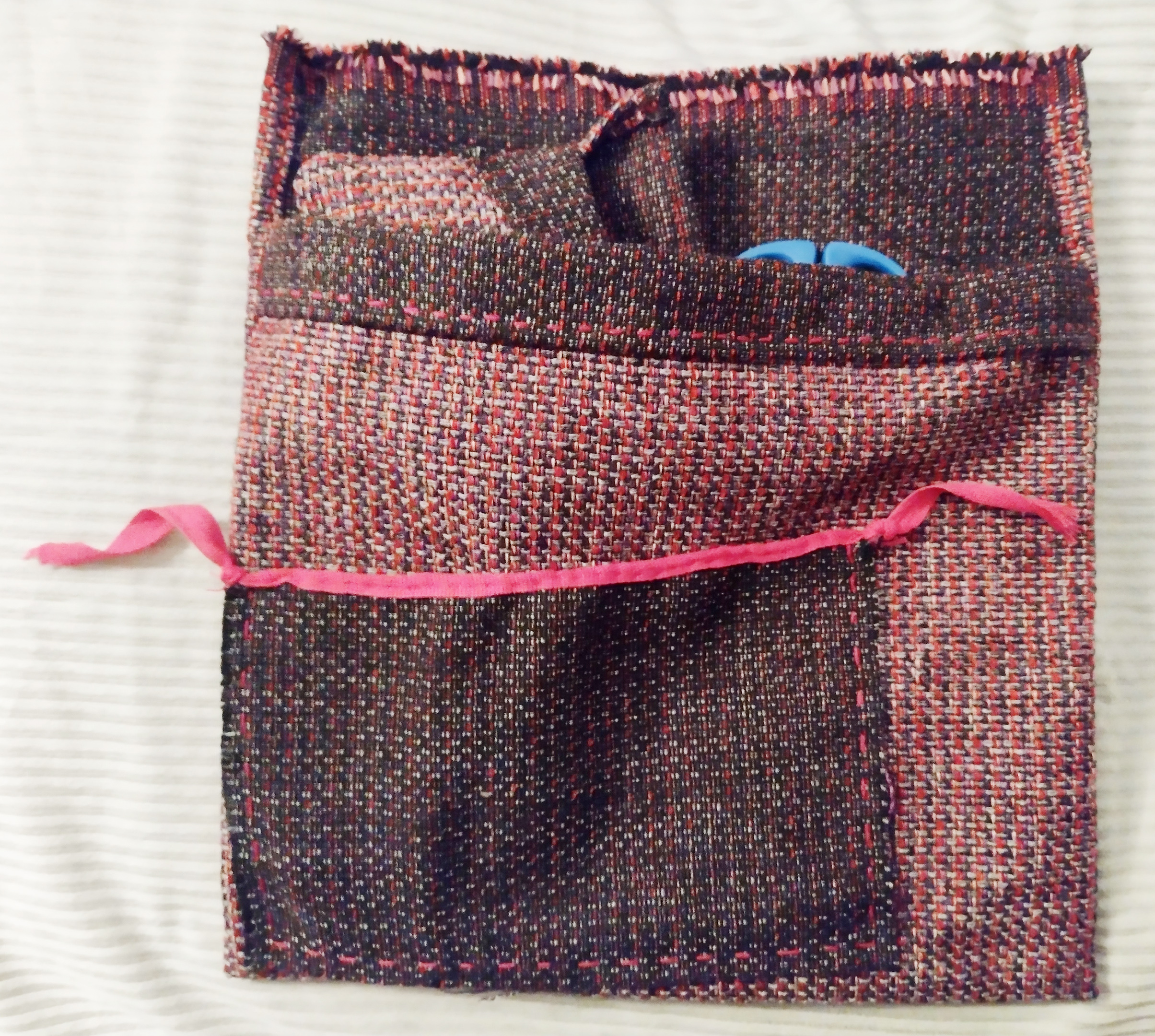
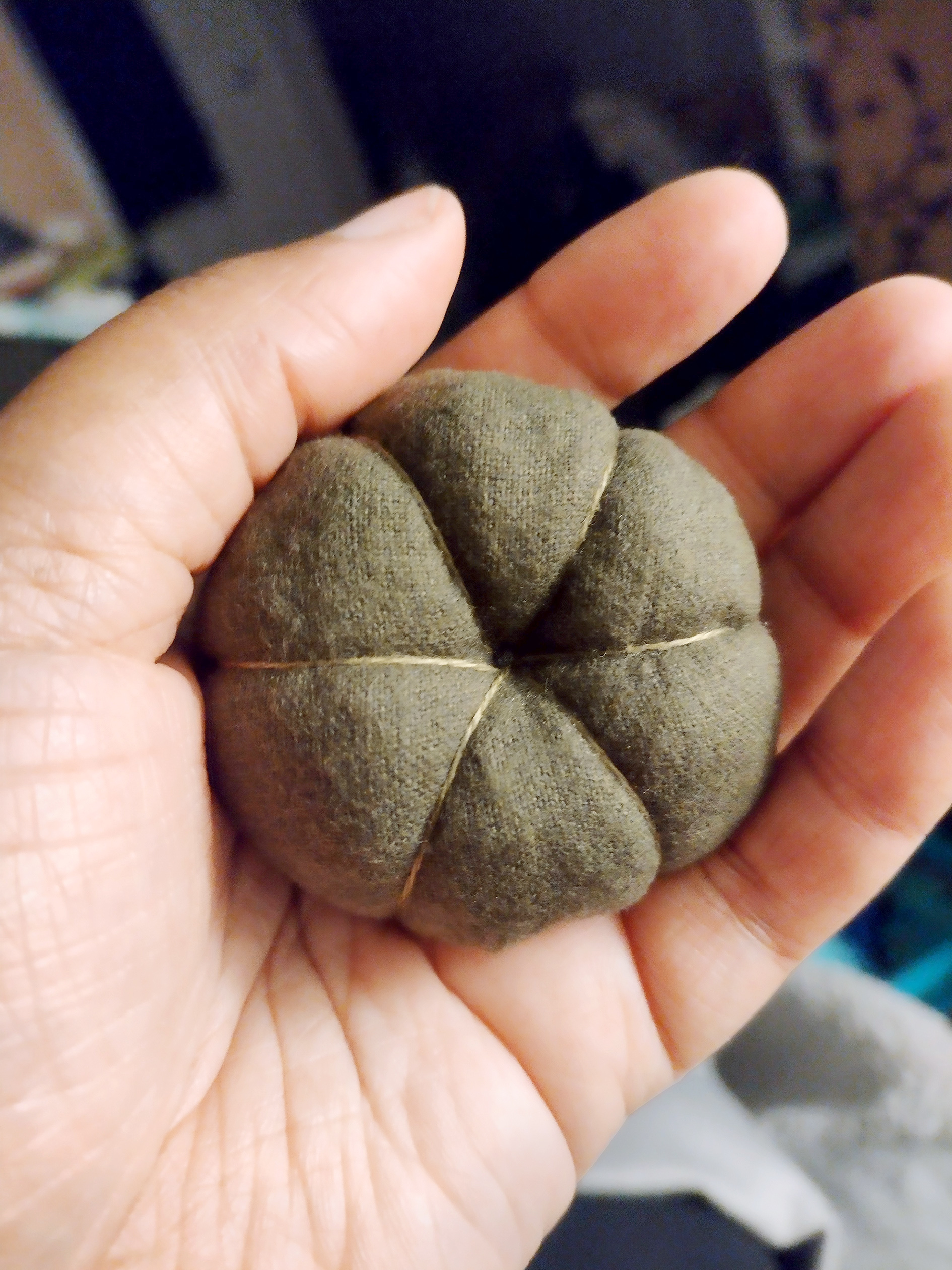
Maximalist flourishing for ADHDers
Fabric is a big part of how I calm my nervous system.
Lately, that looks like creating sewing bags out of upholstery materials (pictured) for community with my current projects, so I can sew whilst I travel.
‘Work on one thing at a time’ is bad advice for me. I've known that long before having much awareness of ADHD. I thrive with multiple projects in progress, that’s maximalist flourishing.
William Dodson MD describes how ADHDers make decisions based on interest, challenge, novelty, and urgency, rather than importance, rewards, and consequences as neurotypicals do.
A maximalist approach to life makes it possible to keep going when something stops being interesting — shift to something else, and switch back later.
Holding myself to a neurotypical standard is a recipe for shame spirals. I’ve known what I need for ages, but it’s only recently I’ve begun to accept and embrace my less popular approach to doing things.
It took a few experiences of putting my sewing needle down for ‘just a second’ and having it vanish into thin air, only to reappear a few days or weeks later for me to realize repetition and redundancy are what I need, not the mechanical efficiency of capitalism, which is devoted to eliminating all of that.
Instead of trying (and failing) to remember where I’ve written useful information, or stashed useful objects, what I need is a surfeit of sewing needles, thread, and notes to myself. Every time I see my homemade needle holders or an impromptu pincushion (read: pile of fabric scraps), it reaffirms that I’m choosing to accept my brain, not fight it.
The books that have most supported me with embracing myself and my brain are KC Davies’ How to Keep House While Drowning and Becky Blades’ Start More Than You Can Finish, the title alone a rallying cry for any budding maximalist. For an immersive sensory experience, I enjoy listening to audiobooks whilst sewing.
Radical expression as revolution
Sewing from scraps is fun, and incremental rather than intimidating. Having such an array of materials at my fingertips is repeatedly and reliably expanding my imagination. Abundance creates opportunities. I’m creating things I never could have imagined.
It gives me hope for building the kind of world I want to live in. Because I know that creativity and problem solving are two sides of the same cloth.
Having learned about the social and environmental impacts of the textile industry in Textiles UnTangled, a collaborative workshop about the lifecycle of fabrics, I’m more convinced than ever that sewing from scraps is a revolutionary action.
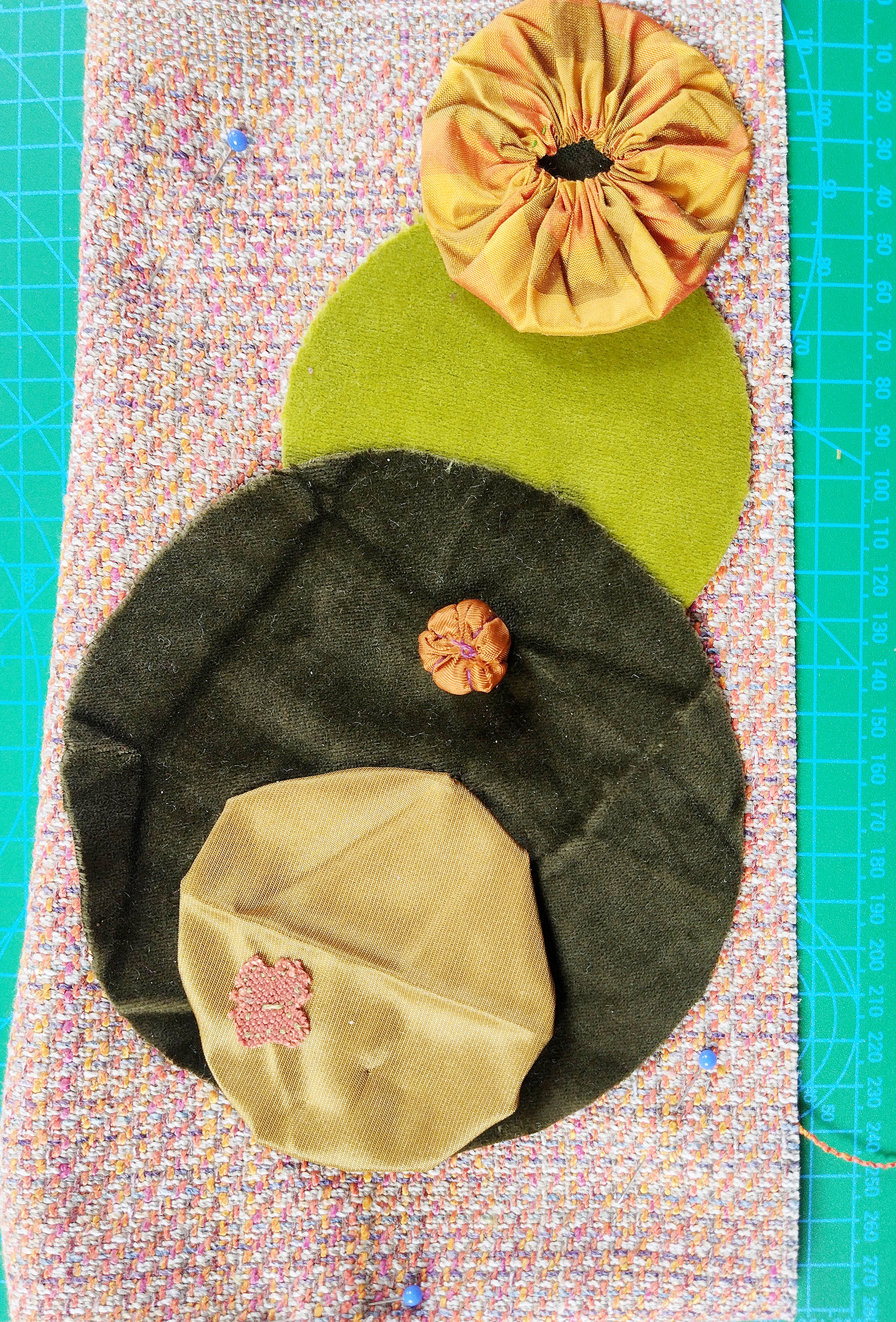
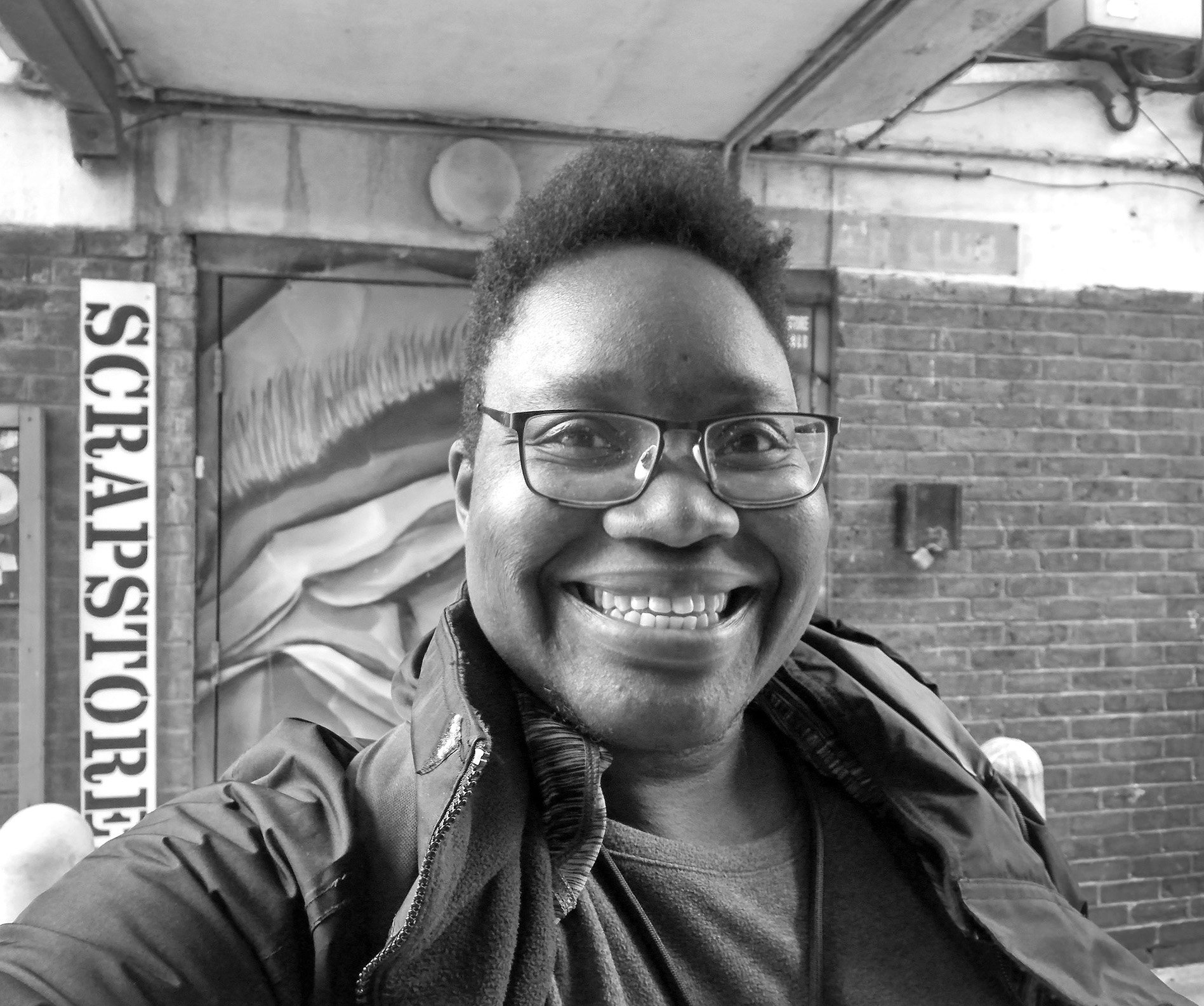
LiLi K. Bright is a writer and workshop facilitator who supports people to connect with nature and creativity by leading writing workshops, climate science training and compassionate communication.You can find them wandering green spaces in London, online at cherrytreewalk.com and @cherrytree_walk on Instagram.